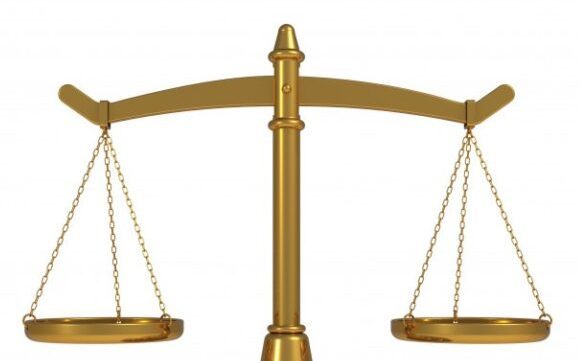A Federal High Court, Abuja on Wednesday fixed January 22, 2024 for ruling on a no-case submission filed by Rep Nicolas Mutu (Delta-PDP) and others against a money laundering charge by the Economic and Financial Crimes Commission.
Justice Folashade Ogunbanjo gave the date after counsel for the parties argued their case for and against.
The News Agency of Nigeria reports that the EFFC had in a charge marked: FHC/ABJ/CR/123/2019, used Mutu, Airworld Technologies Limited and Oyien Homes Limited as 1st to 3rd defendants respectively.
In the second amended charge dated November 22, 2021 and filed November 23, 2021, the defendants were arraigned on 13 counts.

The EFCC alleged, among others, that Mutu, while being the Chairman of the House Committee on the Niger Delta Development Commission between August 2014 and August 2016 “did procure Airworld Technologies Limited to conceal of the sum of N320,159,689.63 to be paid by Starline Consultancy Services Limited when you reasonably ought to have known that the said sum of N320,159,689.63 formed part of proceeds of corruption, gratification and fraudulent acquisition of property”.
The particular offence was said to be contrary to Section 18(c) (d) of the Money Laundering Prohibition Act 2011 as amended by Act No. 1 of (2012) and punishable under Section 15(3) of the same Act.
They pleaded not guilty to the counts preferred against them by the anti-graft agency and Mutu, who represents Patani/Bomadi Federal Constituency of Delta State, was admitted to administrative bail earlier granted by the commission.
Upon resumed hearing, Patrick Ikweto (SAN), who appeared for Mutu and Oyien Homes, informed the court about their no-case application filed.
READ ALSO:
Ireland sack manager Stephen Kenny
Go and make Rivers proud, Sports Commissioner implores Hoopers
APC dissolves Rivers Executives, appoints Caretaker Committee
Ikweto argued that in the instant case, it was not the fact that money might have passed, but the intendment of the action.
He said it was not whether the money was paid, but whether it was paid for gratification.
He cited Nwoboshi Vs FRN case, where the Supreme Court held that the appellant was not guilty of money laundering offence.
Ikweto added that the Supreme Court held that there could have been no basis for the charge.
He urged the court to discharge Mutu and Oyien Homes of all the counts of the amended charge.
J. O. Asoluka (SAN), who represented the Airworld Technologies Limited, aligned with Ikweto’s submission.
He argued that appreciation can never be an offence under the law.
He urged the court to hold that the prosecution had failed to prove the offence of money laundering under the law.
Asoluka cited a case of Edun Vs FRN, where the court held that a person who was paid money could use it the way he wanted and that it did not amount to a crime.
He argued that the payment by Starline Consultancy Service Limited to the defendants, being their legitimate earning, cannot amount to the proceeds of crime.
EFCC’s Lawyer, Ekele Iheanacho, said the commission filed its objection in response to the defendants’ plea.
“We adopt same as our argument in urging your lordship to discountenance the no-case submission of the defendants, and direct the defendant to enter their defence if they have any,” he said.
Iheanacho disagreed with the defence on the case of Nwoboshi Vs FRN cited in their argument.
“Here, we are dealing with a case of corruption and gratification while Nwoboshi was a case of loan,” he said.
According to him, by the principle of starre decisis, cases are only authorities for what they decided.
He insisted that the case cited did not apply and the facts and principles were different, citing previous cases to back his argument.
The lawyer also argued that the case of Edun Vs FRN relied on by the 2nd defendant had to do with criminal breach of trust and not money laundering.
He insisted that the money paid to the defendants by the Starline Consultancy, who were contractor to the NDDC, amounted to gratification.
He said Mutu, who was the Chairman of House Committee on the NDDC, used his official position to accept the various sums of money paid by then NDDC contractor.
He argued that the action violated both the ICPC Act and Code of Conduct under the constitution, which were predicate offences to money laundering for which he was facing trial.
He referred the court to the case of Senator Albert Bassey Vs. FRN, where a Court of Appeal upheld the conviction of the lawmaker of money laundering offences.


